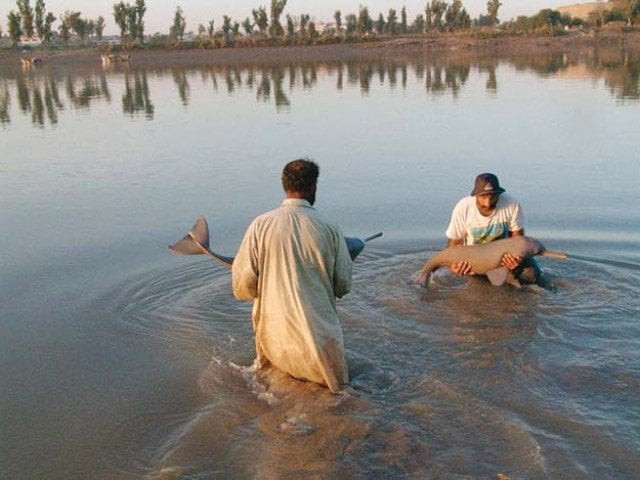Climate change: ‘Steps needed to save Indus Delta from further damage’
Masood Lohar says the delta, which is hub of biodiversity, has been destroyed

Masood Lohar says the delta, which is hub of biodiversity, has been destroyed. PHOTO: FILE
Speaker Masood Lohar said this at the national consultation workshop organised by the United Nations Development Programme - Global Environment Facility's Small Grant Programme (UNDP-GEF SGP) in Pakistan on Tuesday. Participants from across the country took part in the workshop, which was organised before the beginning of the programme's phase 6.
The workshop, held at Marriot hotel, included members of partner community-based organisations, non-governmental organisations (NGOs), environmental experts and journalists. It was organised with the goal to discuss ideas linked to environmental sustainability and to equip the participants with the necessary knowledge. The UNDP-GEF SGP is a small grants programme that provides grants of around $25,000 to community-based organisations and local NGOs, in order to address the challenges faced by the environment.
The phase 6 of the programme will focus on three main themes, which are climate change, land degradation and biodiversity, said Lohar, who is the national coordinator of SGP. He said in this phase, they will focus on providing low carbon housing and cooking techniques.
The SGP presented low-cost and low carbon hazard-resisting bricks, which are said to be prepared using sand from the Thar desert. Lohar claimed that these bricks will help the houses to remain relatively cool, while the construction material will also be environment-friendly. He added that such bricks have already been used in certain projects, such as Indus Earth Trust.
The experts equipped them with technical and theoretical aspects and also apprised them about the situation of Indus Delta, which is in a state of dilapidation.
Hasan and Haider also conducted a group activity for the participants, engaging them in understanding problems and brainstorming solutions. During the activity, interesting ideas were presented to counter and mitigate the effects of climate change. These included using innovations and technology, such as geo-tagging and the use of mobile phones to educate the public. Developing a membrane to filter arsenic in groundwater and starting a campaign to stop the hunting of ibex were also presented as recommendations to show the work that can be done on individual level with the help of the SGP.
Climate change federal secretary Syed Abu Ahmad Akif pledged his support for all the initiatives being taken to counter the risks caused by climate change.
Published in The Express Tribune, August 3rd, 2016.


















COMMENTS
Comments are moderated and generally will be posted if they are on-topic and not abusive.
For more information, please see our Comments FAQ